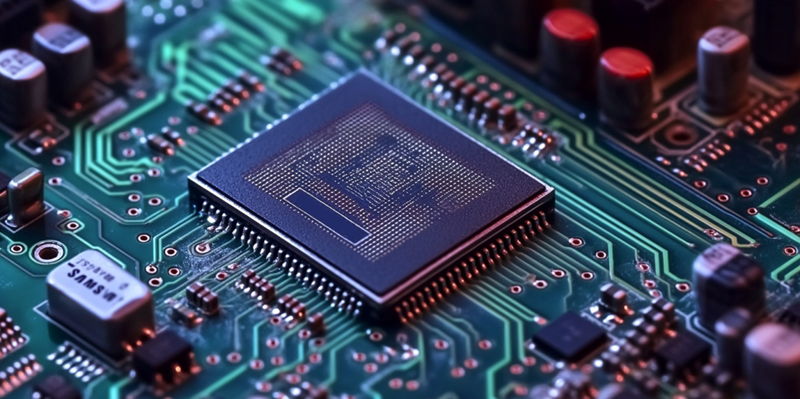NVIDIA’s decision to integrate Samsung’s GDDR7 memory into its upcoming GeForce RTX 50 "Blackwell" gaming GPUs represents a monumental shift in the tech landscape, signaling a potential leap forward in gaming performance and efficiency. For years, NVIDIA has relied heavily on Micron’s GDDR5X and GDDR6X memory for their RTX 30 and RTX 40 series, establishing a strong and fruitful relationship. However, the transition to Samsung’s GDDR7 memory for the RTX 50 series positions Samsung as the dominant force in GDDR7 memory production, surpassing its rivals, SK Hynix and Micron. The implications of this move are vast, posing the question of whether Samsung’s GDDR7 memory will truly revolutionize NVIDIA’s next-generation gaming GPUs.
Advancements in Memory Speed and Efficiency
Samsung’s GDDR7 memory modules are said to bring significant enhancements in terms of both speed and efficiency. NVIDIA plans to use both 28 Gbps and 32 Gbps GDDR7 memory dies in the RTX 50 series GPUs. Notably, the RTX 5080 will feature the fastest 32 Gbps variant, while the RTX 5090 will incorporate the 28 Gbps variant due to its broader 512-bit interface. This careful selection is meant to create a balance between bandwidth and power consumption. The results are anticipated to be impressive; preliminary assessments predict the RTX 5090 could achieve a bandwidth up to 1792 GB/s, a remarkable 78% improvement over the RTX 4090’s 1008 GB/s capacity.
The 16Gb and 24Gb memory modules produced by Samsung are expected to reach future speeds up to 42.5 Gbps, a specification that underscores the revolutionary potential of GDDR7. Moreover, Samsung’s rigorous verification and validation processes ensure that their memory meets exceptional quality standards, thus promising higher performance and efficiency for gamers and enthusiasts. This commitment to cutting-edge technology aligns seamlessly with NVIDIA’s goal of pushing the boundaries of gaming hardware to new pinnacles.
Anticipated Market Impact and Launch Timeline
The debut of the GeForce RTX 50 "Blackwell" GPUs is scheduled for CES 2025, with retail availability projected for January of that year. This timeline suggests that gamers and technology enthusiasts alike will not have long to wait before they can experience the tangible benefits of this powerful new collaboration. Industry observers anticipate that the launch will be met with high demand, and the gaming community eagerly anticipates the performance advancements promised by GDDR7 memory integration.
Utilizing Samsung’s GDDR7 memory, NVIDIA plans to enhance both the performance and efficiency of its GPUs, which may redefine the user experience in gaming and other graphics-intensive applications. The expected bandwidth improvement and superior memory speeds will not only elevate gaming experiences but will also significantly influence workflows that depend on high-performance GPUs, such as in content creation, AI development, and scientific research. This plays into overarching trends within the semiconductor industry, which increasingly focus on higher memory speeds and capacities to meet growing computational requirements.
Conclusion
NVIDIA’s choice to incorporate Samsung’s GDDR7 memory in its upcoming GeForce RTX 50 "Blackwell" gaming GPUs marks a significant change in the tech industry, hinting at a potential major advancement in gaming performance and efficiency. For a considerable time, NVIDIA has depended on Micron’s GDDR5X and GDDR6X memory for their RTX 30 and RTX 40 series, forming a solid and productive partnership. However, shifting to Samsung’s GDDR7 memory for the RTX 50 series now elevates Samsung as the leading player in GDDR7 memory production, outpacing its competitors, SK Hynix and Micron. This strategic move carries extensive implications, raising the question of whether Samsung’s GDDR7 memory will indeed transform NVIDIA’s next-generation gaming GPUs. Gamers and tech enthusiasts alike are keen to see if this new collaboration will set a new standard in the gaming world, offering unprecedented speeds and efficiencies. Only time will tell if this integration will live up to the high expectations surrounding it.

